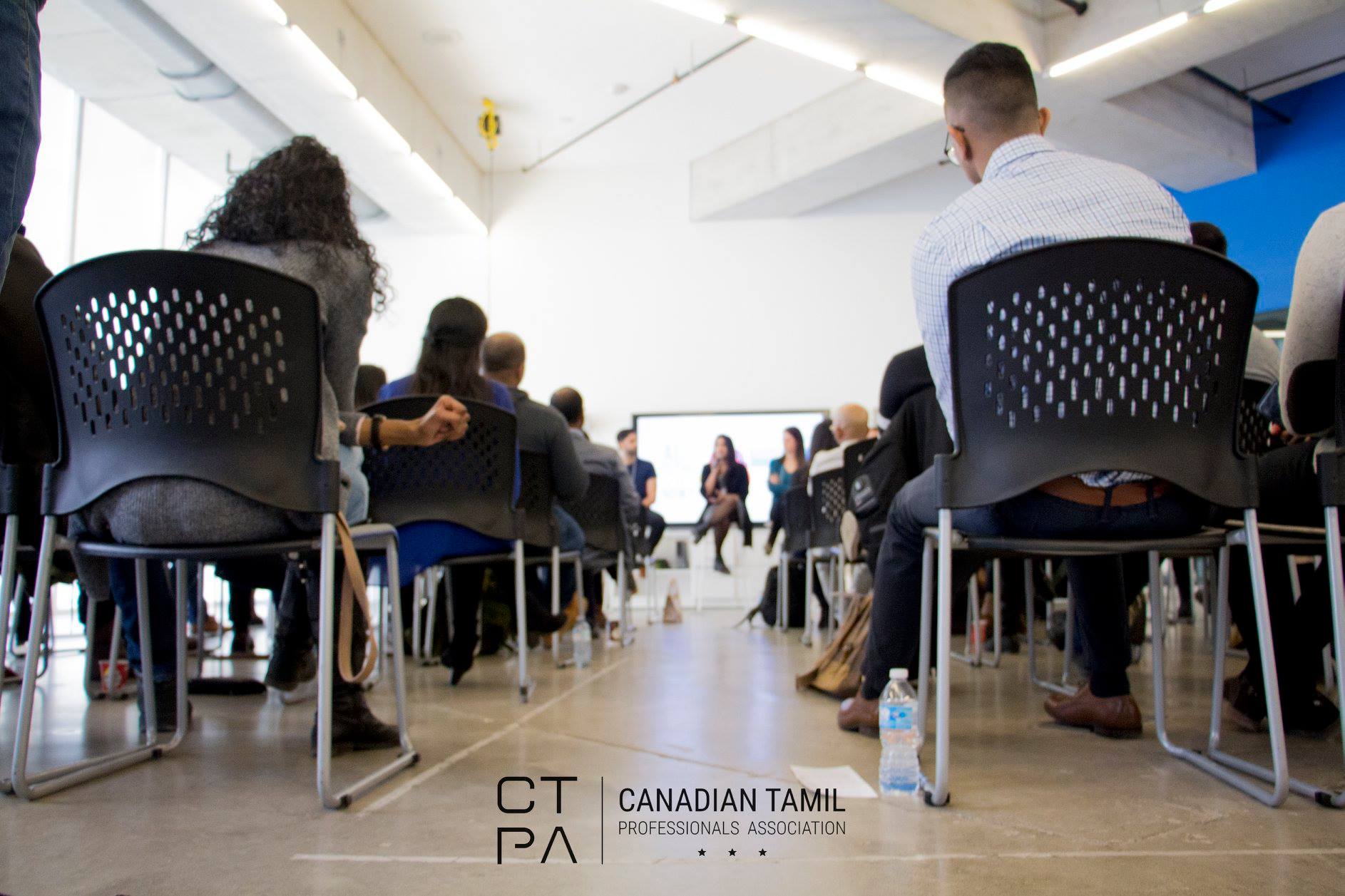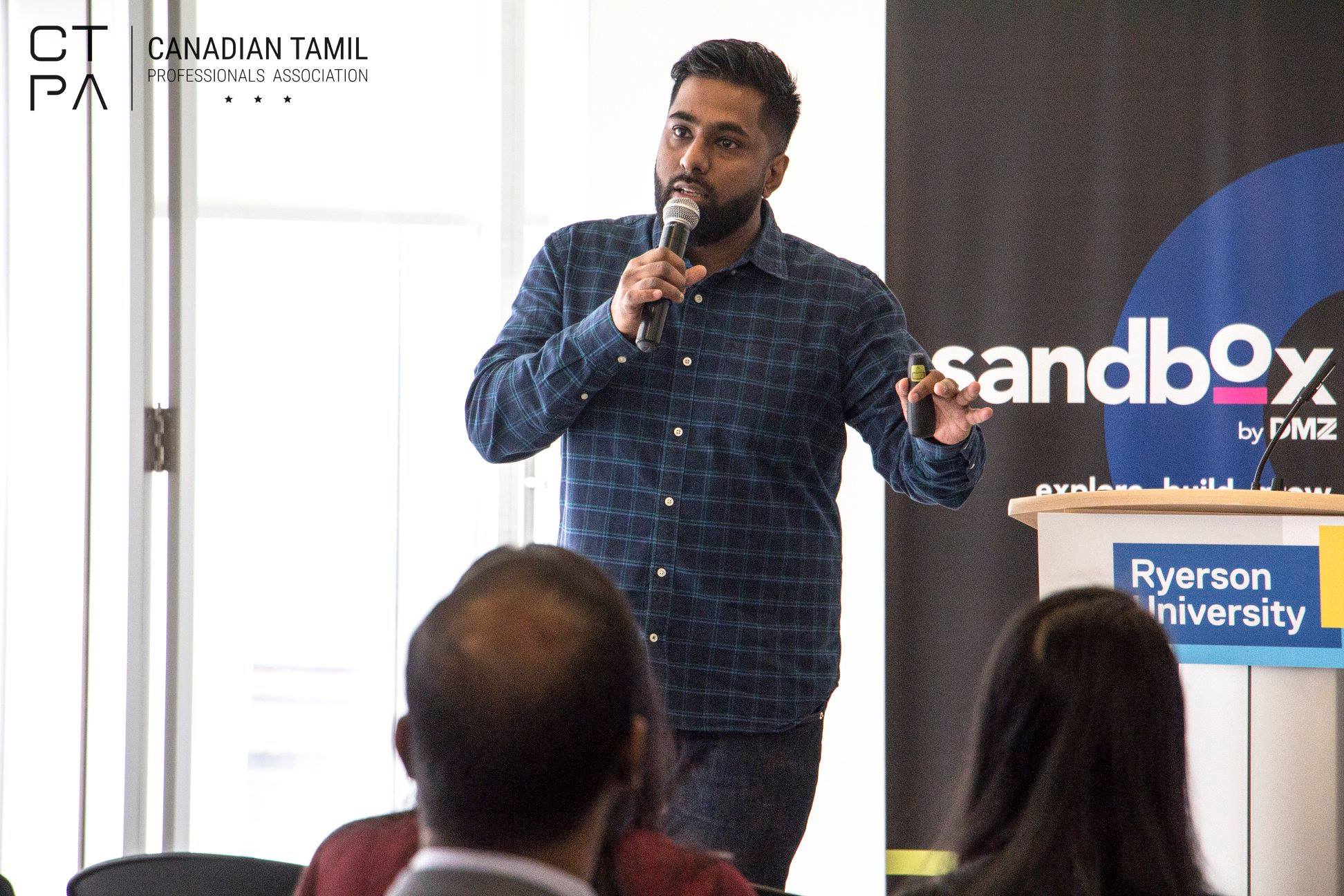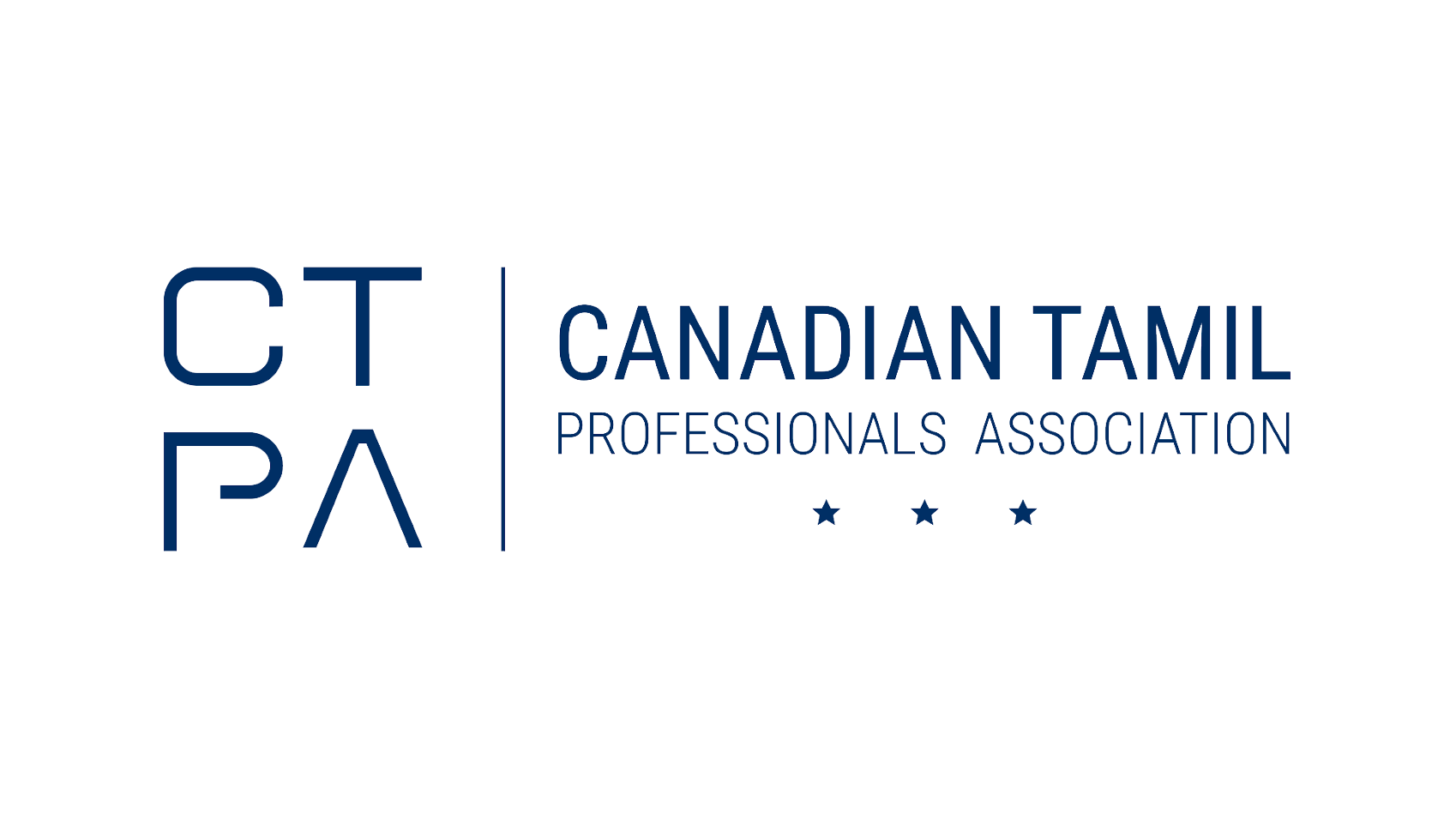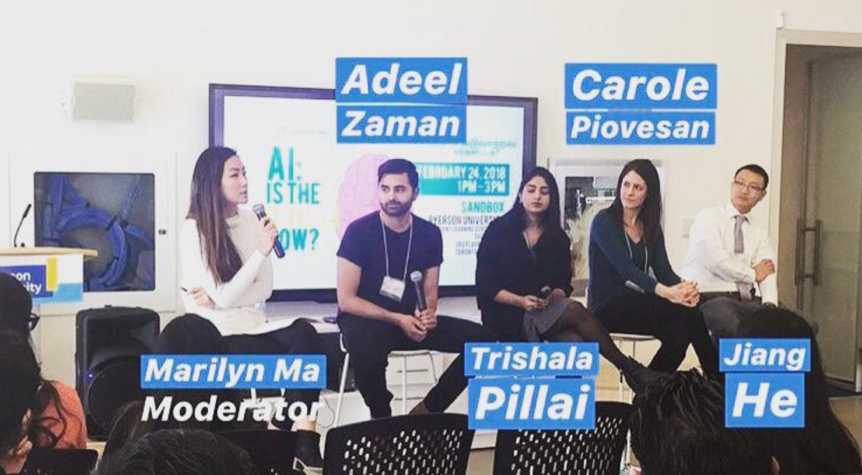In a bright, sunlit room at the Sandbox inside Ryerson Student Centre, an audience of 60 young professionals gathered to learn about AI; Artificial Intelligence. Upon arrival, everyone was asked to download the sli.do app for an interactive survey and as a method for attendees to ask questions. It was a sleek way to slide in some tech savviness to the crowd right from the start.
Nishaani introduced the moderator and panelist experts that included Marylin Ma, Adeel Zaman, Carole Piovesan, Trishala Pillai, and Jiang He. She then prepared us to be challenged and educated on the various applications of AI.

There were a series of questions that each of the experts gave their experience and opinion on. The first question on the agenda: What is Artificial Intelligence?
Most of the answers from the panelists indicated that AI is when a machine (computer system) mimics human intelligence. There are two main subsets of AI, one is ‘Machine Learning,’ an example is the inputting of thousands of images of faces into iPhoto on your computer, basically feeding data into the machine and training it to recognize it. ‘Deep Learning’ is another subset, and takes AI further, by the machine being able to analyze the photos and categorize facial expressions such as happiness.
AI algorithms are used all over the place, like the New York Times online, FaceBook ads, Netflix, YouTube autoplay, Google Translate, Siri, Alexa, Sunlife products, Robotics, conversational chatbots (customer service online chats) and a range of other technology that helps us ascertain decisions for our lives.
The next big question was what industries are affected by AI? The answers spanned all across the board: Technology, Healthcare, Legal, Retail, Construction, pretty much everything. The legal industry is being disrupted by AI, especially with the amount of data files used in law. However, people within the field are still raising their eyebrows when they hear the term AI, showing us that it is infiltrating everything, without us even fully realizing it. AI seems like a foreign, futuristic concept, even though it’s already here and being used in the present.
That leads us to the next question: What are some of the fears about AI? In the workforce, there is a lot of fear surrounding AI. Even though AI has great potential for products for consumers, there seems to be a lot of resistance from employees. There is insecurity as jobs will likely be eliminated as AI automates and simplifies tasks. However, it is necessary to help workers understand how AI will transform their jobs, or possibly create new ones that involve implementation of AI. Roles will shift and it is very important for there to be a collaborative effort. Change is imminent. Jobs that are easy to break down the process and categorize are the ones that can be easily made into an AI application.
In the near future (2030), approximately forty percent of jobs will be replaced by AI automation, so we need the government to be thinking proactively in order to prevent social or economic polarization. Review of legislation needs to be done and as AI evolves, people need to be involved.
For example, jobs that will be fully automated like truck driving, must be examined ahead of time, so that new jobs are created to take their place and give these workers future options. These issues need to be addressed so that workers in these situations will still be productive once their job has been automated. Many jobs that will be created include: training the machines, bridging the gaps, empathy training, and worldview training (for the machines!). There are still many roles that will evolve and grow.
Other fears include:
Robots being objectified and consumers becoming more comfortable sharing their deep secrets to a machine as opposed to having deep/uncomfortable conversations with a real person.
Social systems must adapt and government policies will require major changes to leverage AI. Making sure that legislation has the right balance between innovation and protection of individual privacy rights, based on our values.

So what are things we can do to be prepared for AI?
1. Learn both the math and science of AI, there are many resources where you can get good information online to become well-versed. (Recommendations at end)
2. Play with the technology! Alexa, Siri, Google Home, building your own chatbot!
3. Start to own and use these new systems, by interacting with AI and being a participant in its evolution.
There is a large shortage of AI engineers, so it may be a great field to explore opportunities in, especially since Canada is one of the global leaders at the forefront of AI technology. In fact, ethical AI could be Canada’s niche specifically because of how diverse and tolerant we are as a nation. How can we all engage and actively be involved? It is important to have these conversations and discover more about AI. From the event, it was evident that it’s not difficult to upscale your knowledge of AI, however, it does takes a conscious and deliberate effort.
What we do know about AI, is that we don’t know exactly how it’s going to affect us! Since we are human beings and can truly never be replaced by machines, soft skills will play an even bigger role in the future, as AI continues to become more and more mainstream.
Discussions like the one held at the event are the ones that need to happen. Talk to your friends, colleagues, and family about AI. Read up on the topic, use the technology, and even challenge yourself to pick tasks at your workplace and see how they can be automated by AI. There are problems in every industry that can most likely be solved by AI.
It is important to have these discovery discussions about AI, as it is here to stay and only going to become a larger part of our lives with each passing day. We must move towards embracing AI, as it is coming towards us in full force regardless, so let’s be ready, instead of not.
Recommended resources to check out from our panelists:
Websites:
www.khanacademy.org
www.udacity.com
www.coursera.org
www.deeplearning.ai
www.lynda.com
Books:
The Master Algorithm by Pedro Domingos
Hit Refresh by Satya Nadella
A Legal Theory for Autonomous Artificial Agents by Samir Chopra and Laurence White
Movie:
The Imitation Game
A special thanks to Sen Sachi, the Director of Accelerator Programs at the DMZ (Digital Media Zone) who was instrumental in helping the CTPA event team to create and host the workshop at such a cool venue.

